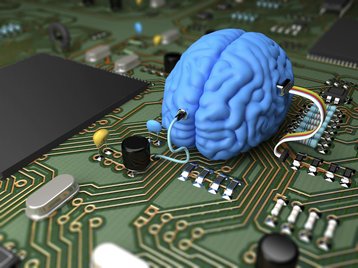Machine learning is arguably the most powerful tool we have seen so far for unlocking the potential of Big Data, and one of the sectors that stands to benefit most from it is the data center industry.
Given that most companies are highly reliant on the performance of their data centers to ensure services can be delivered and productivity maintained, there is a constant, acute pressure on facilities managers to predict, manage and react to any change that could adversely affect operational availability and performance.
Brain sell
As a result, data centers are starting to realize the potential of machine learning technologies to automate and improve their ability to keep these facilities performing optimally. Furthermore, even though many companies still use rudimentary tools to track and oversee data center performance, it is becoming increasingly difficult for humans to manually analyze data directly from DCIM systems and verify if the data collected by the vast sensor networks monitoring these facilities is accurate.
Only last month, the UK’s Royal Society published a report that looked at the power and promise of machine learning. Its focus was on how this area of computing will reshape the UK economy and people’s lives. The report also asked questions about who will be affected, how the benefits will be distributed and where the opportunities for growth lie.
The benefits for data centers have already been proven and the knock-on effects are many and various. Google recently explained that it is using its DeepMind Machine Learning technology to manage power consumption at its data centers by dynamically tuning their performance to reduce their operational energy consumption. In one of Facebook’s data centers meanwhile, its Big Sur servers are training Machine Learning systems to ‘read’ images and videos to the blind and display over two million translated stories every day (as reported in March’s OCP Summit).
It is becoming difficult for humans to manually analyze and verify DCIM data, collected by vast sensor networks monitoring facilities
In the same way, machine learning has a big part to play in further enhancing analytics tools for data centers. The ability to generate validation models for performance analysis, investment analysis and even for assessing the suitability of a location for a new data center offers immense advantages such as reducing costs and improving operating performance.
Our own analytics platform identifies anomalies and can help track down the causes behind a symptom based on comparison to a calibrated predictive model as well as aggregated data ‘knowledge’ collected over years from over 350 data centers around the world. In this way we’re able to provide powerful and actionable insight into operations and systems so customers can maintain peak performance at all times and increase ROI.
Zahl Limbuwala is founder and executive director of Romonet



